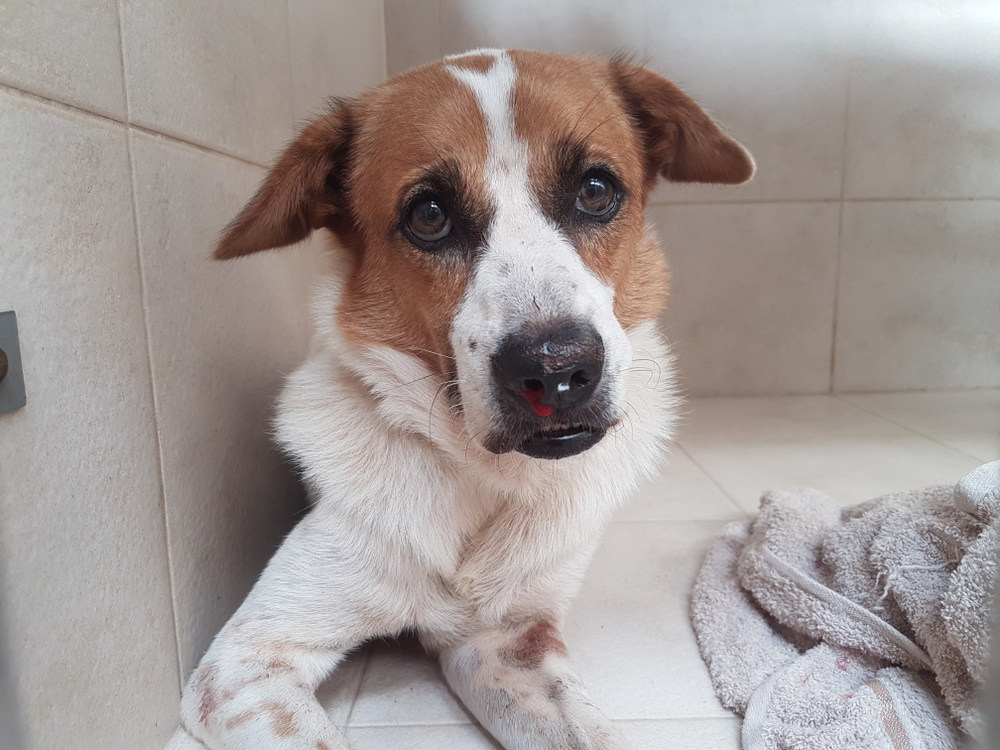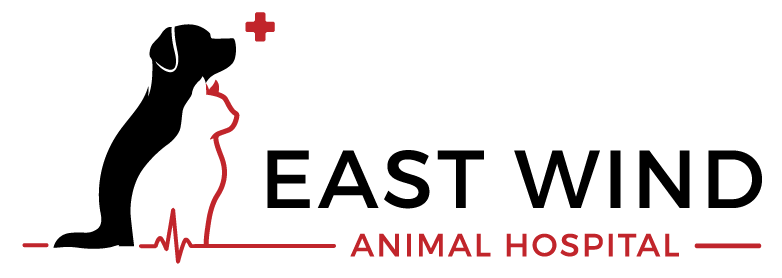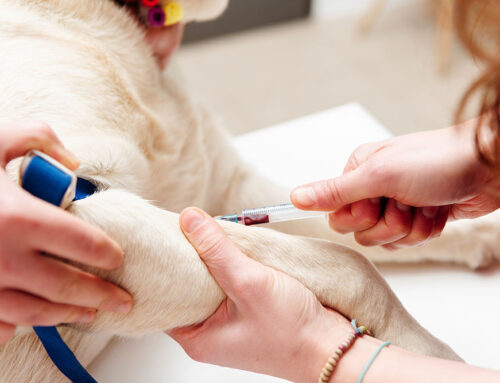While regular veterinary check-ups and wellness care are crucial, recognizing when your pet needs urgent medical attention is equally important. Identifying these emergencies can make a significant difference in your pet’s recovery and prognosis. Our East Wind Animal Hospital team shares 12 conditions in pets that require urgent care.
1. Difficulty breathing
Breathing difficulties are always a serious concern. If your pet is struggling to breathe, panting excessively, or making unusual breathing noises (e.g., wheezing, gasping), they could have a life-threatening issue. Conditions like asthma, heart disease, or an airway obstruction also can cause these signs. Immediate veterinary attention is crucial to diagnose and treat the underlying problem.
2. Seizures
Seizures can be alarming and can indicate serious issues, such as idiopathic epilepsy, poisoning, or brain tumors. If your pet is seizing, first protect them from injury by moving objects close by. Then, contact our East Wind Animal Hospital veterinarian immediately. Seizure activity warrants an urgent veterinary visit to determine the cause and appropriate treatment.
3. Severe vomiting or diarrhea
While pets can vomit or have diarrhea occasionally without concern, severe or persistent episodes can lead to dehydration and indicate serious health problems, such as gastrointestinal (GI) infections, pancreatitis, or toxin ingestion. If your pet cannot keep food or water down or has blood in their vomit or stool, seek urgent care immediately.
4. Trauma or injury
Injuries from accidents, falls, or fights can cause significant internal and external damage to your pet. Visible wounds, limping, or pain signs should never be ignored. Internal injuries may not be immediately apparent, so a veterinary visit is essential for a traumatized pet to assess their condition and prevent complications.
5. Difficulty urinating
Struggling to urinate or showing pain while urinating can indicate a urinary blockage or infection, which can be life-threatening if not treated promptly. Male cats, in particular, are prone to urinary obstructions that can lead to fatal electrolyte imbalances and organ failure. Any changes in urination habits should be evaluated immediately.
6. Allergic reactions
Pets can react to various substances, including insect bites, medications, and foods with allergy signs that can include swelling, hives, itching, vomiting, or difficulty breathing. Severe reactions, known as anaphylaxis, require immediate veterinary intervention to prevent potentially fatal outcomes.
7. Collapse or weakness
Sudden collapse or extreme weakness can signal serious conditions, such as heart disease, internal bleeding, or severe infections. If your pet collapses or cannot stand, seek emergency veterinary care immediately to stabilize their condition and identify the cause.
8. Eye issues
Eye problems can escalate quickly and lead to permanent damage or vision loss if not addressed promptly. Eye redness, squinting, swelling, discharge, or an obvious injury require immediate veterinary attention. Timely treatment can prevent further complications and preserve your pet’s eyesight.
9. Toxin ingestion
Pets are curious creatures and commonly ingest harmful substances, such as household chemicals, medications, foods such as chocolate and xylitol, certain plants like lilies, and antifreeze. Poisoning signs can vary but may include vomiting, drooling, seizures, or lethargy. If you suspect your pet has ingested a toxic food or item, contact our veterinarian or an animal poison control center immediately.
10. Bloat
Bloat, which is also known as gastric dilatation-volvulus (GDV), is a life-threatening condition where the stomach fills with gas and flips on itself. Large, deep-chested dogs are most commonly affected, but any pet can develop GDV. Signs include a distended abdomen, unproductive retching, restlessness, and discomfort. GDV is a medical emergency that requires immediate surgery to save the pet’s life.
11. Paralysis
Sudden paralysis, especially in the hind legs, can indicate a spinal injury or intervertebral disc disease (IVDD). Immediate veterinary evaluation and treatment are essential to prevent permanent damage and improve recovery chances.
12. Excessive bleeding

Excessive bleeding from a wound, nose, or any other area should be addressed immediately, because blood loss can lead to shock and other severe complications. Apply pressure to the bleeding area and transport your pet to the nearest veterinary hospital.
Knowing the signs of conditions that require urgent care can make a significant difference in your pet’s health and well-being. Always err on the side of caution and consult our East Wind Animal Hospital veterinarian if you notice any unusual signs or behaviors in your pet.







Leave A Comment